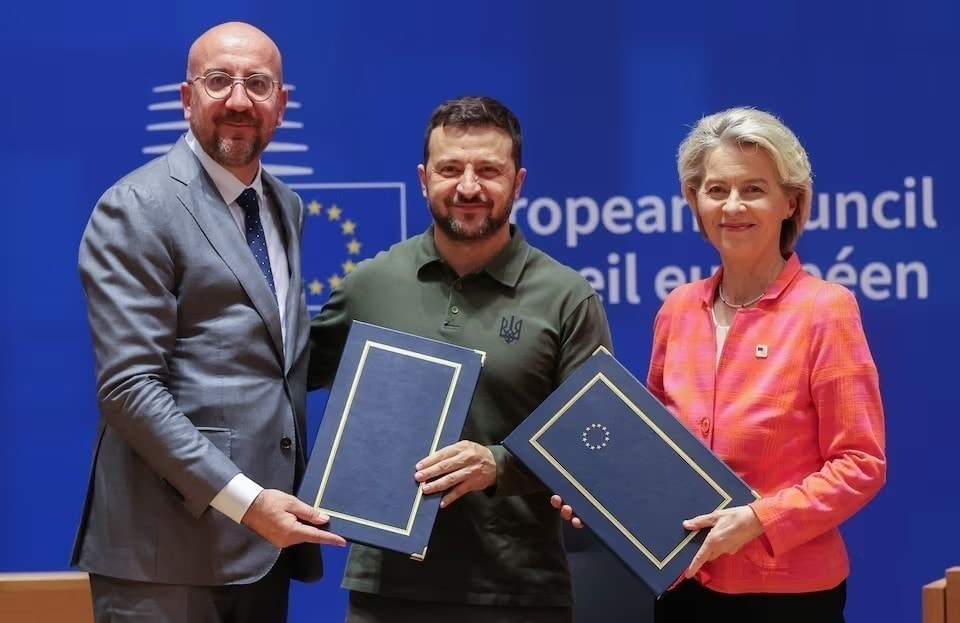While Russia is determined to prevent Ukraine from joining NATO, it does not object to Kiev moving closer to the European Union (EU). Is this a concession or a calculated strategic move?

According to the Telegraph (UK) on February 24, in the context of geopolitical tensions between Russia and Ukraine, a big question is why Moscow does not oppose Ukraine joining the European Union (EU), while they are determined to prevent Kiev from becoming a member of NATO.
The answer lies not only in Russia's short-term strategy but also in the Kremlin's long-term goals of reshaping relations with the West.
Calculated concession
In recent negotiations, Russia has repeatedly stressed that it opposes Ukraine's accession to NATO and the presence of foreign troops on Ukrainian territory. However, Moscow has been more open to Ukraine becoming a member of the EU.
According to Russian Foreign Minister Sergei Lavrov, Ukraine's accession to the EU is the country's "right to self-determination." This raises the question: Why doesn't Russia object?
According to experts, Russia's lack of opposition to Ukraine joining the EU may stem from Moscow's larger strategy – reintegrating with the West after years of isolation.
Mark Galeotti, director of the Mayak Intelligence consultancy, said Russia was well aware that Ukraine's accession to the EU could create an opportunity for Russia to re-establish its influence in Europe.
One of the main reasons why Russia does not oppose Ukraine joining the EU is because it would bring economic and political benefits to Moscow. If Ukraine becomes an EU member, Russia could use the annexed territories such as Donetsk and Luhansk to re-establish trade relations with the EU through Ukraine.
Emily Ferris, senior Russia analyst at the Royal United Services Institute (RUSI), said this would give Russia indirect access to the EU market.
A prime example is Transnistria, a breakaway region of Moldova that has close ties to Russia. More than 80% of Transnistria's exports go to EU countries and Moldova, giving Russia a "back door" into the European market.
If a similar setup were applied to the Russian-annexed territories of Ukraine, Moscow could benefit from access to EU markets without having to participate directly.
Rising tensions in the EU
However, Ukraine’s accession to the EU could also have serious economic and political consequences within the bloc. Ukraine is one of the world’s largest grain producers, and joining the EU could cause agricultural prices to plummet, putting farmers in member states such as Poland, Slovakia and Hungary at a disadvantage.
Over the past year, Polish farmers have staged several protests against cheap grain imports from Ukraine, which have reduced their income.
In addition, the EU will face significant financial pressure to help Ukraine rebuild after the conflict. According to estimates, Ukraine may have to transfer $500 billion in rare earth resources to the US in exchange for military aid. This will increase the financial burden on the EU, leading to internal disputes and divisions.
Russia’s lack of opposition to Ukraine joining the EU may be a calculated strategy. Moscow is well aware that Ukraine’s EU membership could bring economic and political benefits to Russia.
While Ukraine's accession to NATO is seen as a direct threat to Russia's security, EU accession is less dangerous and could even become an opportunity for Moscow to re-establish its influence in Europe.
As expert Galeotti commented: "When Russia says 'We do not object' - the 'ball' is completely in the Europeans' court" and in this situation, Russia will not hesitate to exploit every opportunity to gain its strategic advantage.